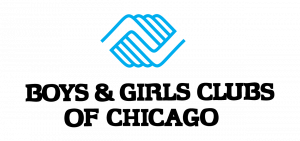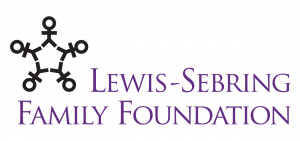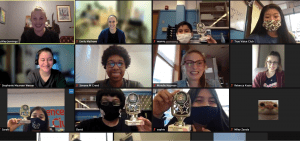Hands on Science in Small Groups
Impactful relationships, real science. Every week, all year.
WHO WE ARE
Science Club was developed in close collaboration between the Boys & Girls Clubs of Chicago, teachers from Chicago Public Schools, and Northwestern University. The program aims to promote engagement in the sciences and to close the science achievement gap for underserved youth in Chicago.
Since 2008, Science Club has recruited over 125 scientist mentors to work with small groups of youth every week throughout the school year at the Boys & Girls Clubs of Chicago. The program was originally funded by the NIH Science Education Partnership Award (SEPA) and has since grown with the generous support of the Lewis Sebring Foundation, Silverstein Foundation, Shaw Family Foundation, American Honda Foundation and The Driskill Foundation.
HOW IT WORKS
Science Club meets once a week after school, all year long. Kids and scientists work together on science challenges and experiments. Groups are small so everyone gets a chance to be hands-on.
Beyond our weekly meetings, we have regular field trips and special activities, including CPS Science Fair support and visits to Northwestern’s research labs on campus.
Science Club is more than just our weekly meet-ups, too. After 8th grade, many Science Club graduates work as junior mentors and docents, and everyone attends our annual alumni BBQs to catch-up during high school, college and beyond.
Science Club is also a research project. It’s run by Science in Society, a center at Northwestern University dedicated to science education. We work hard to make sure our programs are making a measurable impact for both mentors and youth — and share our findings with our wider community.
Science Club Milestones

2008
Science Club begins, co-designed by Boys & Girls Clubs of Chicago, teachers in Chicago Public Schools, and Science in Society. The program is designed to extend science learning into after school through authentic science mentoring from Northwestern researchers. The first Science Club cohort is 4 mentors and 12 youth.

2009
The National Institutes of Health provides a five-year, $1.4 million grant through the Science Education Parntership Award (SEPA) program. The funds are used to design, implement, and test Science Club’s long-term, mentor-based approach to afterschool STEM education.

2015
American Honda Foundation funds an expansion of Science Club programing to a second site: the True Value Boys & Girls Club in Little Village. Within two years, the True Value Science Club will enroll 40 youth supported by 20 mentors.

2016
Generous Funding from the Lewis-Sebring Foundation enables Science Club to come to two Evanston sites: McGaw YMCA-MetaMedia and Family Focus. Together, these sites serve up to 40 youth, bringing the total Science Club program to 140 youth and 70 mentors weekly

2017
A grant from the the Driskill Foundation funds construction of an authentic 800 sq. ft. laboratory at True Value Club. This resource supports Science Club, BGCC’s DIY STEM and other science and engineering programs.

2018
Science Club’s approach to mentor training and support is recognized as a national exemplar by MENTOR: The National Mentoring Partnership. MENTOR’s The Elements of Effective Mentoring, STEM supplement features best practices for STEM programs.

2019
The National Science Foundation recognizes Science Club’s long-term impact with a five-year, $2.5 million grant to study the role of mentoring relationships. University of Illinois mentoring expert, Bernadette Sanchez, joins the Science Club leadership team.

2021
COVID-19 Didn’t stop Science Club from supporting students. Boys & Girls Club staff worked together with Science in Society to launch an all-remote Science Club experience. This kept mentors, staff, and students connected during this challenging time.
